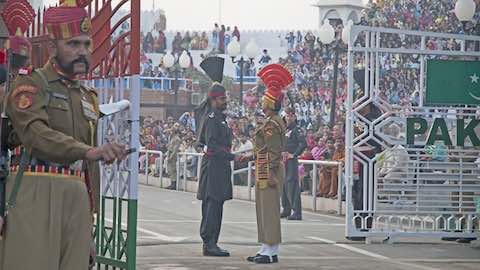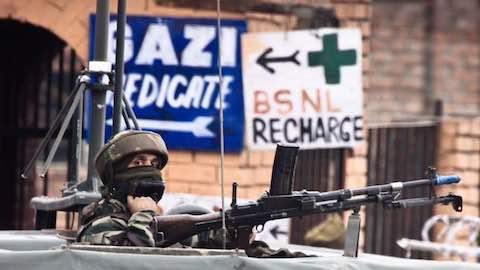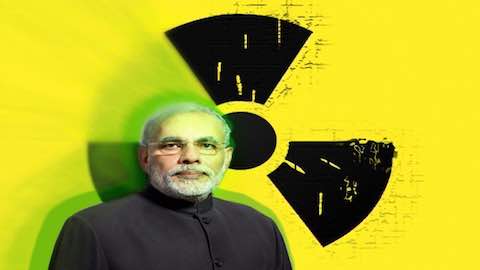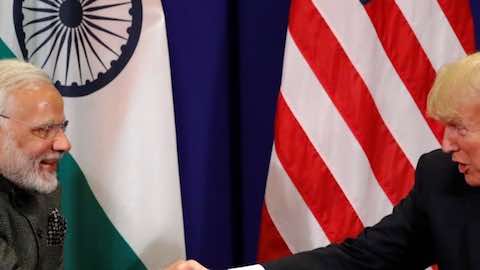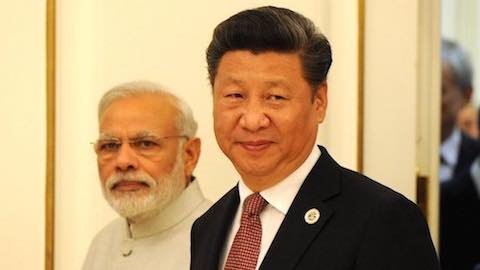- MENU
- HOME
- SEARCH
- WORLD
- MAIN
- AFRICA
- ASIA
- BALKANS
- EUROPE
- LATIN AMERICA
- MIDDLE EAST
- United Kingdom
- United States
- Argentina
- Australia
- Austria
- Benelux
- Brazil
- Canada
- China
- France
- Germany
- Greece
- Hungary
- India
- Indonesia
- Ireland
- Israel
- Italy
- Japan
- Korea
- Mexico
- New Zealand
- Pakistan
- Philippines
- Poland
- Russia
- South Africa
- Spain
- Taiwan
- Turkey
- USA
- BUSINESS
- WEALTH
- STOCKS
- TECH
- HEALTH
- LIFESTYLE
- ENTERTAINMENT
- SPORTS
- METRO
- INDUSTRY
- Agriculture
- Airline
- Auto
- Beverage
- Biotech
- Book
- Broadcast
- Cable
- Chemical
- Clothing
- Construction
- Defense
- Durable
- Engineering
- Electronics
- Firearms
- Food
- Gaming
- Healthcare
- Hospitality
- Leisure
- Logistics
- Metals
- Mining
- Movie
- Music
- Newspaper
- Nondurable
- Oil & Gas
- Packaging
- Pharmaceutic
- Plastics
- Real Estate
- Retail
- Shipping
- Sports
- Steelmaking
- Textiles
- Tobacco
- Transportation
- Travel
- Utilities
- COMPANIES
- 3M (MMM)
- AT&T (T)
- AIG (AIG)
- Alcoa (AA)
- Altria (MO)
- American Express (AXP)
- Apple (AAPL)
- Bank of America (BAC)
- Boeing (BA)
- Caterpillar (CAT)
- Chevron (CVX)
- Cisco (CSCO)
- Citigroup (C)
- Coca Cola (KO)
- Dell (DELL)
- DuPont (DD)
- Eastman Kodak (EK)
- ExxonMobil (XOM)
- FedEx (FDX)
- General Electric (GE)
- General Motors (GM)
- Google (GOOG)
- Hewlett-Packard (HPQ)
- Home Depot (HD)
- Honeywell (HON)
- IBM (IBM)
- Intel (INTC)
- Int'l Paper (IP)
- JP Morgan Chase (JPM)
- J & J (JNJ)
- McDonalds (MCD)
- Merck (MRK)
- Microsoft (MSFT)
- P & G (PG)
- United Tech (UTX)
- Wal-Mart (WMT)
- Walt Disney (DIS)
- RSS
- iHaveNet.com: Indian Sub-Continent
Countries
Argentina | Australia | Austria | Benelux | Brazil | Canada | China | France | Germany | Greece | Hungary | India | Indonesia | Ireland | Israel | Italy | Japan | Korea | Mexico | New Zealand | Pakistan | Philippines | Poland | Russia | South Africa | Spain | Taiwan | Turkey | United Kingdom | United States
- Modi Is Really Popular in India
- India Turns the Tables on China
- Pakistan's Strategic Stability
- Islam & Human Rights in Pakistan
- The EU-Pakistan Relationship
- Is China a Threat?
- A Sacrifice That Went Unrecognized
- The Threshold for Nuclear War
- Bin Laden Killing & U.S. Intelligence
- Bhutto's Assassination
- India's Neglected Generation
- Balochistan: Pakistan's Next Headache?
- Volunteer for a Better India Campaign
-
In what is described as the biggest human gathering of the world, 30 million pilgrims took the holy dip at the meeting point of the Ganges and the Yamuna rivers at Kumbh Mela in India
-
Health experts in Bangladesh have reported a fresh outbreak of the Nipah virus, with 10 deaths in the past few weeks. If infected you have a high chance of dying
-
Stronger civil registration systems are needed in Asia, home to 60 percent of the world's population, to ensure the legal and human rights of all, and facilitate health planning
-
Recent clashes between the nuclear-armed neighbors -- India and Pakistan -- are the worst outbreak of violence in Kashmir since a cease-fire took effect in 2003
-
The end of the decades-old civil war in Sri Lanka enabled the world to shift its focus to events in Africa and the Middle East. Not smart, argue numerous observers. Colombo now appears unwilling to integrate meaningful reconciliation and reintegration processes into its official policies
-
India seemed on the brink of becoming the world's next great power. Today, its future appears less certain. Although some have blamed the global economic recession, the real problem is domestic -- namely, the centralized, secretive, and arbitrary political culture that pervades New Delhi
-
India has been reluctant to devise a strategy based on hard power. This helps to explain India's growing consciousness of its soft power - the aspects of Indian society, culture and political values that the world finds attractive
-
Two of the most restive regions continue to influence the strategic calculations of India and Pakistan. And while the projection of soft power by both countries may prove to be a confidence-building measure, its long-term impact upon regional security dynamics remains far from clear
-
While India is increasingly considered an emerging global power, it remains a country bedeviled by internal problems. These will inevitably impact upon New Delhi's ability to project power across a multipolar international system
-
Even before forces begin leaving Afghanistan, predator nations are pouring lavish praise and buckets full of cash on Afghan leaders, trying to win access to the nation's vast natural resources
-
Indians do not have much understanding of European crises. If European woes are the reward for fiscal improvidence, Indian governments should have collapsed long ago
-
When the Seychelles announced the invitation for China to set up a military presence, Indian, American and Taiwanese policy analysts wrote that this was further evidence of a 'string of pearls' strategy to encircle India with naval bases leased by China
-
As Pakistan and China reinforce their relationship, questions have arisen around the changing nature of this alliance, the rhetoric that sustains it, and the implications of greater Chinese influence in Pakistan, particularly for the US and India
-
Pakistan has once more shut its border with Afghanistan, blocking a third of NATO supplies. What are the alternatives, and how much do they cost?
-
The murder of infants, particularly girls, by poverty-stricken parents in Pakistan appears to be on the rise.
-
Militarization is no substitute for development when it comes to combating radicalism in the Afganistan and Pakistan
-
A steady improvement in India's economy, together with politico-economic changes in its neighborhood, are prompting a re-examination of the national interest in New Delhi
-
The Pakistani leadership has apparently come to the point where it realises that for the survival of the country and its structures, it must buy peace for the present with India
-
Asia has one of the largest concentrations globally of aging persons, creating a host of potential challenges
-
Plans for Kathmandu could lead to violence as the authorities seek to evict thousands of landless squatters. Some 40 squatter settlements with an estimated population of over 20,000 are being targeted
-
Northern Bangladesh's mostly Hindu indigenous people are still coming under land-grabbing pressure from the country's predominantly Bengali Muslim population
-
The United States issued a cautious reaction to the recent requests by India to social networking sites to take down potentially offensive content
-
Economic growth in India slowed during the third quarter falling to 6.9 percent from 7.7 percent for the previous quarter
-
Since the infliction of unacceptable damage may not deter Pakistan from breaking the nuclear taboo, a 'tit for tat' strategy in case of lower order nuclear use is worth considering
-
If India is able to sustain a comprehensive partnership with Afghanistan in trying circumstances, it would serve as a model for managing its relationships with other neighbors
-
Will Asia's growing economic power be accompanied by a similar rise in its military power? This is a key question for today's policy-makers searching for signs of a shift in the world's military balance
-
The 165 schools UNICEF has agreed to build cannot cater for the needs of all the quake-affected children, such as the disabled
-
While India's ability to handle the challenges may be constrained by a slowing economy, it would need to manage them through requisite diplomatic skill and finesse
-
The death toll at the Bangladesh-India border continues to mount three months after the Indian government instructed its border security forces to stop shooting civilians suspected of being undocumented migrants or a threat to national security
-
Thousands of ethnic Bengalis living near the Bangladesh-India border have for decades found themselves citizens of one nation but bound within the sovereign territory of another. In recent months they have escalated their campaign for a land swap that will align their citizenship with cartography
-
Australian Prime Minister Julia Gillard has expressed support for allowing the sale of uranium to India in the near future
-
Critiques of the Indian Army's counterinsurgency practice have overlooked a critical aspect of 'organisational innovation and operational learning' formalised as Op Sadhbhavana
-
A 6.9-magnitude earthquake on 18 September in northeastern India which also caused deaths in parts of Nepal and China, serves as a stark warning to the earthquake-prone region, experts say
-
Militant Islamism is not primarily responsible for instability in the region despite claims to the contrary
-
A middle class has emerged, several hundred million Indians have seen lifestyles improve immeasurably and wealth is displayed more conspicuously than ever before. Western attention is often fixated on India's economic growth
-
Pakistan is an utterly failed state that is tumbling down the abyss. Where else could a fundamentalist cleric who lives in Canada draw tens of thousands to a rally calling for dissolution of the government?
-
The US seems to be devising a multi-pronged agenda to compel Pakistani acquiescence in the ongoing stabilisation efforts in Afghanistan and ensure its long term presence in the region
-
Central Asia has increasingly dazzled players from near and far, once they've grasped its worth as a crucial source of energy and as a strategic asset. Among these we may count India
-
With better connectivity and implementation of various development projects, the Asian Highway would enable the North-East region to become a business hub of South Asia
-
Recent reports suggest the Pakistan Navy may be on the cusp of developing a naval nuclear missile capability, even as its plans for acquiring a nuclear submarine capability gradually become clearer
-
In 2007 China set up its sovereign wealth fund, the China Investment Corporation, with an initial capital fund of $200 billion. Since then, Asia's other emerging economic power â€" India â€" has been wondering if it should follow. Such a move is ill-advised and that India has more worthy investment opportunities at home
-
Mutual distrust between the United States and Pakistan in part results from mistakes and misjudgments by both countries that date back to the 1979-89 Russian occupation of Afghanistan. But at its heart is an American strategy that not only runs counter to Pakistan's interests
-
In the wake of its strategic partnership agreement with India, Afghanistan has become an untouchable, even an 'enemy', for many Pakistani commentators
-
In the wake of the November 2008 terrorist attacks in Mumbai, the Indian government took some initial steps toward a more robust counterterrorism policy. Since then, however, a spate of deadly attacks on high value targets have continued, most recently against the High Court premises in New Delhi last month
-
Chinese Premier Wen Jiabao and his Indian counterpart Manmohan Singh agreed to establish a regular bilateral strategic economic dialogue mechanism during Wen's visit to India last December, and the first one-day meeting of the China-India Strategic Economic Dialogue was held in Beijing on 26 September
-
Adopting constitutional means and respecting the political process is the only way to achieve sustainable change in Indian politics. The goal of eradicating corruption may be worthy, but Anna Hazare's means are blatantly wrong and ultimately dangerous. It is time this message is delivered to him, loud and clear
-
Osama bin Laden's death during an American raid on his compound in Abottabad, Pakistan, not far from Pakistan's premier military academy, has pushed U.S.-Pakistan relations to a 'new low,' says Hassan Abbas. Abbas says this is typical of the recent rocky relationship the two countries, which need each other but also undercut each other at crucial times
-
The death of Osama bin Laden is unlikely to have much of a tactical impact on the wider jihadist movement, but the killing does carry significant implications for U.S. foreign policy moving forward
-
Much has been made of U.S. President Barack Obama's pledge to support India's push for a permanent seat on the United Nations Security Council, which was offered during his November trip to India, but the real story from his visit was its implications for bilateral military trade.
-
The United States is threatening to also sanction India if it doesn't observe U.S. sanctions on Iran
-
Afghanistan's war enters its second decade with the Taliban emboldened and the United States enfeebled. But the power-play between Pakistan, India and China is also now central to an assessment of what comes next
-
In the wake of the resolution of several contentious issues, India and Bangladesh must cooperate to create a border that not only enhances trade efficiency but is also secure
-
The Inidan PM's speech in the UN General Assembly shows that Indian foreign policy may be rediscovering age old themes which had become subdued in recent years.
-
There has been no serious study comparing the political trajectories of India and Pakistan. Those who have tried to fill this gap have attributed India's democracy to Hinduism and Pakistan's autocracy to Islam. Fortunately, Philip Oldenburg, a research scholar at Columbia University, is wise enough not to resort to such sociocultural explanations
-
A major strategic challenge for the United States in the coming decades will be integrating emerging powers into international institutions. The dramatic growth of Brazil, China, and India -- and the emergence of middle-tier economies such as Indonesia and Turkey -- is transforming the geopolitical landscape and testing the institutional foundations of the post-World War II world order
-
Pakistan's delegation, led by army chief General Pervez Ashfaq Kayani, cleverly changed the subject. He came armed with a fifty-six page book on ways the United States should do more to help Pakistan. Kayani also left his chief spymaster at home, practically eliminating potential for in-depth counterterrorism debates.
-
Until the late 1990s, the United States often ignored India. India's weak and protected economy gave it little influence in global markets, and its nonaligned foreign policy caused periodic tension with Washington. When the United States did concentrate on India, it too often fixated on India's military rivalry with Pakistan. Today, however, India is dynamic and transforming.
-
A survey found multiple problems at temporary settlements, of which 75 percent lack lighting and 46 percent lack blankets. Residents at 39 percent of settlements have reported acute watery diarrhea or other air- and water-borne disease
-
Disgruntled former Maoist combatants are blocking roads in major cities and towns along Nepal's main east-west highway, as part of an ongoing effort to highlight their plight
-
As water balloons drenched the unsuspecting, the celebration of Fagu Purnima or Holi -- the festival of colors -- was in full swing in Nepal
-
Karachi is the biggest city in Pakistan. It is the country's commercial hub, financial capital, naval base, and only operational seaport. For the past several months, this city has once again been in the grip of violence
-
Just a day after a powerful blast ripped the entrance of New Delhi's High Court, Kashmir police took three men into custody on the basis of an email believed to have been sent by terrorist group Harkat-ul-Jihad al-Islami
-
Anna Hazare's movement is a populist one, and like all such campaigns offers simplistic solutions to complex problems. Yet there is no doubt that it has galvanized the urban middle class, and if properly channelled could change the trajectory of Indian politics
-
It's time, I think, to resacralize progress. One way to start is to recognize the rights of native peoples around the world not to be displaced, to see in their determination to remain in reverent connection to a piece of the earth not something quaint and primitive and of value to them alone, but the heart and center of humanity's struggle with itself.
-
China and India stopped being part of what was called the third world when the Communist world disappeared in a shattering of global illusions in 1989. Since then there has been a search to find a new King of the Global Hill. The United States rejoiced for a few years in being the sole superpower, considering it an opportunity to remake the world according to its own advantage.
-
For nearly a year, an unmanageable coalition government in India has obstructed the ruling Congress Party's policy agenda and brought the country's economic reform process to a grinding halt. Now that an impressive electoral triumph in national parliamentary elections held in April and May has allowed the party to shed unreliable allies, can its leaders move the country in a more market-friendly direction. There are grounds for both caution and optimism
-
Nandan Nilekani's book, Imagining India, charts how India arrived at the potentially transformative moment it has reached today and describes the gargantuan challenges the country will have to overcome if it is to fulfill that potential
© iHaveNet.com
HOME | WORLD | USA | BUSINESS | WEALTH | STOCKS | TECH | HEALTH | LIFESTYLE | ENTERTAINMENT | SPORTS
Current Events in the Indian Sub-Continent
Indian Sub-Continent News & Indian Sub-Continent Current Events. Current Events from the Indian Sub-Continent
Your Single Source to Current Events Around the Indian Sub-Continent
Your Single Source to Current Events Around the Indian Sub-Continent
RSS Feeds | Shopping | Email Alerts | Site Map | Privacy
